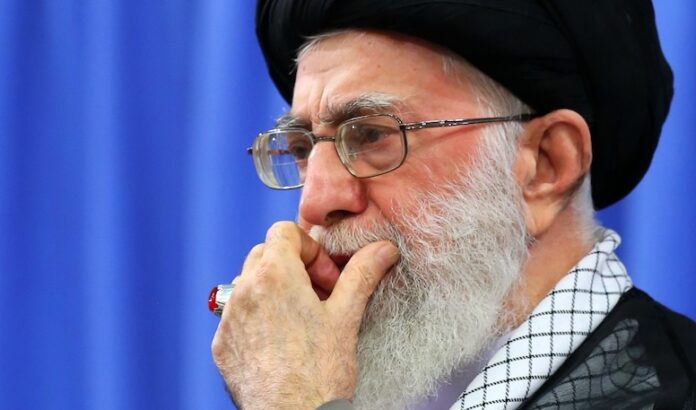Iran’s Role in the Gaza Conflict: Empty Rhetoric and Betrayal
The ongoing Gaza war has lasted over a year, pulling in various regional actors closely linked to Iran’s influence. Iranian proxies such as Hezbollah, the Houthis in Yemen, and Iraqi militias loyal to Tehran have all targeted Israel. These attacks aim to show unity with Hamas and fighters in Gaza while reaffirming the so-called “Axis of Resistance.” Iran, claiming to lead this axis, has suffered significant setbacks and humiliation during the conflict. The disconnect between Iran’s public promises and its limited actions reveals a focus on self-preservation rather than loyalty to its allies.
Iranian Proxies and Their Role in the Conflict
Iran’s use of regional proxies allows it to project influence across the Middle East without direct military engagement. Hezbollah, one of its strongest allies, has played a leading role by launching strikes against Israel from Lebanon. Similarly, the Houthis and Iraqi militias have staged attacks, all under Iran’s broad direction to exert pressure on Israel. These groups aim to demonstrate their solidarity with the Palestinian cause while Iran oversees from a distance. However, Iran’s calculated avoidance of direct confrontation reveals its strategy of protecting its forces.
Israeli Strikes and Iran’s Response
In light of Iran’s strong rhetoric against Israel, Tehran has faced multiple humiliating blows from targeted Israeli airstrikes. The assassination of Hezbollah’s long-serving leader, Hassan Nasrallah, along with other key Hezbollah figures, disrupted Iran’s influence in the region. Israeli operations in Syria, including the killing of Iran’s ambassador in Damascus, further demonstrate Tehran’s weakening position. Iran did retaliate with missile strikes aimed at Israel, but these efforts were mostly intercepted and had little effect. This ineffective response highlights the gap between Iran’s aggressive words and its limited actions in the face of Israeli aggression.
Iran’s Self-Interest in Proxy Conflicts
Iran’s approach to the Gaza conflict clearly prioritizes self-preservation over loyalty to its regional proxies. When Hezbollah pleaded for Iranian military support during intense Israeli attacks, Iran’s response was weak, leaving Hezbollah to face the consequences alone. Hamas has similarly experienced devastating losses at the hands of Israel, yet Iran offered no substantial support beyond ineffective missile strikes. Tehran’s hesitation to engage directly stems from a desire to maintain diplomatic ties with powerful nations rather than risk military escalation. This self-interested behavior has severely damaged Iran’s reputation as a reliable ally for the Axis of Resistance.
The Consequences of Iran’s Inaction
Iran’s reluctance to provide military aid has strained its alliances with proxies and exposed the limitations of its regional strategy. Hezbollah, which once held significant power in Lebanon, has lost key leaders and military capabilities, weakening its influence. The internal unrest resulting from Iran’s abandonment of its allies has left Hezbollah vulnerable to external threats. Israel’s continued strikes against a weakened Hezbollah further complicate the group’s ability to recover. Tehran’s failure to defend its partners in critical moments has weakened its regional standing and caused many to question its strength and reliability.
Iran’s Diplomatic Focus Over Military Action
Iran has prioritized diplomatic maneuvering over military engagement during the Gaza conflict, reflecting a shift in its broader strategy. While Iran did retaliate with missile strikes, these efforts were largely ineffective, as American-led forces intercepted most missiles. Tehran’s leaders have focused more on securing diplomatic relations with Western powers, particularly in ongoing nuclear negotiations. This approach emphasizes Iran’s desire to protect its international standing while keeping its direct military involvement minimal. Despite its vocal stance against Israel, Iran’s strategy clearly favors diplomacy over direct military intervention.
The Erosion of Iran’s Regional Influence
The prolonged Gaza conflict has exposed Iran’s declining influence in the Middle East. The loss of key Hezbollah leaders, the absence of meaningful support for Hamas and Hezbollah, and the unrest in Lebanon all point to Iran’s diminishing power. Iran’s reluctance to engage militarily while pursuing diplomatic efforts has alienated its proxies and damaged their ability to resist Israel’s military power. Tehran’s decisions during the conflict have weakened the very groups it once relied on to maintain influence across the region. The shift in strategy exposes Iran’s preference for protecting its self-interest, leaving its proxies vulnerable and questioning their trust in Tehran.
Iran’s Abandonment and Proxy Collapse
The Gaza war has highlighted the reality of Iran’s self-serving approach toward its regional alliances. Tehran’s failure to act decisively when its proxies faced threats reveals a strategy driven by its own interests rather than loyalty to the “Axis of Resistance.” The weakening of Hezbollah, the lack of direct support for Hamas, and the chaos in Lebanon all show Iran’s reluctance to risk its diplomatic ties. Iran’s actions in this conflict demonstrate that self-preservation guides its decision-making, leaving its allies to face the consequences. Tehran’s focus on its own survival has left its proxies exposed, weakening their resistance and casting doubt on the strength of Iran’s alliances.

